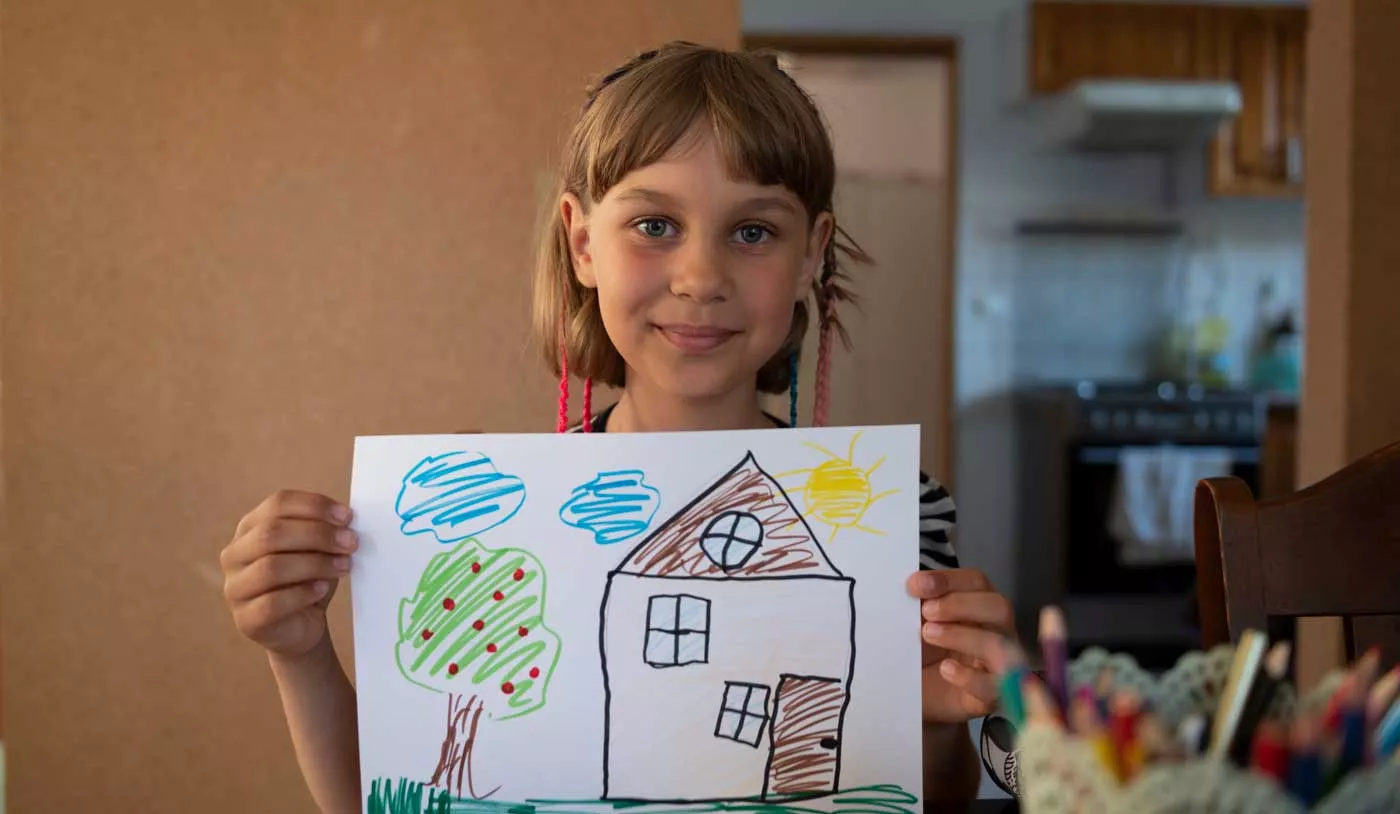Situation in Ukraine
As fighting continues in Ukraine, the shelling and airstrikes continue to impede the well-being of children and families. A wave of air and missile attacks across Ukraine in October led to scores of people being injured or killed and damage to critical infrastructure – especially power, heating, water and gas utilities. According to the Ministry of Energy, approximately 773,000 households and businesses remain without power.
Pressure on the power grid will deprive children of schooling and put patients at risk in hospitals and health facilities. Between the damaged infrastructure and the intense fighting, the upcoming winter will be hard on families.
Overall, more than 7.7 million Ukrainians have crossed the borders seeking refuge in other countries. Within Ukraine, nearly 7 million are estimated to be internally displaced, with the majority displaced from eastern Ukraine. Host communities are also being stretched, with shortages in accommodation, even for the most vulnerable populations.

The new school year started in September with teaching resuming where possible. However, some 5.7 million school-aged children have been affected since the start of the war, including 3.6 million due to the closure of educational institutions.
To date, SOS staff and program beneficiaries in Ukraine are safe and there haven’t been any reported incidents of injury or harm. The safety and security of SOS Children’s Villages Ukraine staff and its program participants remain a top priority, appropriate security measures are enacted to mitigate any identified risks.
SOS Ukraine Emergency Response Programs
Despite the situation, SOS Ukraine continues to respond to the humanitarian crisis and expands its activities.
To date, more than 142,000 children and parents have been reached by SOS Children’s Villages programs in Ukraine and in refugee-hosting countries, the majority of them receiving humanitarian assistance. Through diverse emergency response activities, SOS Ukraine has been increasing the number of program participants they reach.

By partnering with others, SOS Children’s Villages Ukraine has been able to reach more than 38,000 people with various types of essential humanitarian assistance. The main services provided in partnership include food and hygiene kits, non-food items and humanitarian case management.
Five new centres providing social services are operating in safe areas in western and central Ukraine. They have provided short-term humanitarian assistance, including cash assistance and group and individual mental health and psychosocial support (MHPSS). Each month, these centres receive new families and continue to support those already in the program.
Since March, several SOS refugee-hosting countries have been working tirelessly to provide accommodation and multiple services to refugees who arrived from Ukraine. More than 9,900 children and parents have benefited from programs for Ukrainian refugees in SOS Children’s Villages in Austria, Bulgaria, Czech Republic, Estonia, Finland, Greece, Hungary, Italy, Latvia, Lithuania, Poland and Romania.
SOS Bulgaria
SOS Bulgaria continues with their regular activities throughout its main locations. They provide accommodation in fully equipped houses that allow families to have their own personal space as well as common spaces for children. Families have also been supported financially through daily allowances to help access basic materials such as food, clothes and hygiene materials.
Each accommodated family went through an initial needs assessment, which was the base for an individual support plan. Our colleagues there continue regular reviews of the support plans to ensure tailored assistance and the well-being of our program participants. Mental health services have also been provided upon request.
SOS Bulgaria has also provided Ukrainian refugees support in obtaining residence status, registering to have access to healthcare and access to the labour market. In addition, SOS Bulgaria has worked to enrol children in daycare centres and local schools.

Recreation activities, excursions and workshops have also been organized for children. The organization of common events, holidays, trips, and group art-therapy activities had a visible positive impact on the adaptation of the refugees to their new situation.
SOS Greece
With a focus on supporting single-mother-headed families, as well as individual refugees residing in the local communities, SOS is providing access to interim accommodation, mental health and psychosocial support, language classes, legal aid assistance and cash assistance among other services, addressing the most pressing needs of people.
SOS Greece’s activities have also focused on supporting program participants towards independence and social inclusion through livelihood and job preparedness. Children receive educational support through language classes as well as recreational and stress-relief activities, which facilitate their social inclusion through various community-based projects with the existing Ukrainian community.
Creating services, opportunities and support for refugees requires a community-wide effort. Following this approach, a partnership was established with the United Ukrainian Diaspora which SOS Greece meets with on a bi-weekly basis.
SOS Latvia
SOS Latvia provides shelter for several groups of people, including women and children arriving from Ukraine that have no place to stay. SOS Latvia started providing some direct payments so families could cover their basic needs. In addition, they continue to provide need-based holistic services to program participants, depending on the kind of support they require.
SOS Latvia also works in partnership with four regional project coordinators and in direct cooperation with local municipalities and their social services, as well as with other local NGOs providing necessary informative and psychosocial support to adults and children who are accommodated by local municipalities. They help people to understand the local situation, how to apply for available social support and benefits, employment possibilities, and organize informal support groups and activities for children among others.
